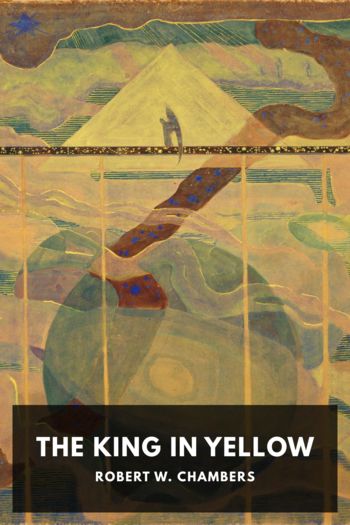The Middle Temple Murder by J. S. Fletcher (good books for 7th graders TXT) 📕

- Author: J. S. Fletcher
Book online «The Middle Temple Murder by J. S. Fletcher (good books for 7th graders TXT) 📕». Author J. S. Fletcher
By J. S. Fletcher.
Table of Contents Titlepage Imprint I: The Scrap of Grey Paper II: His First Brief III: The Clue of the Cap IV: The Anglo-Orient Hotel V: Spargo Wishes to Specialize VI: Witness to a Meeting VII: Mr. Aylmore VIII: The Man from the Safe Deposit IX: The Dealer in Rare Stamps X: The Leather Box XI: Mr. Aylmore Is Questioned XII: The New Witness XIII: Under Suspicion XIV: The Silver Ticket XV: Market Milcaster XVI: The “Yellow Dragon” XVII: Mr. Quarterpage Harks Back XVIII: An Old Newspaper XIX: The Chamberlayne Story XX: Maitland Alias Marbury XXI: Arrested XXII: The Blank Past XXIII: Miss Baylis XXIV: Mother Gutch XXV: Revelations XXVI: Still Silent XXVII: Mr. Elphick’s Chambers XXVIII: Of Proved Identity XXIX: The Closed Doors XXX: Revelation XXXI: The Penitent Window-Cleaner XXXII: The Contents of the Coffin XXXIII: Forestalled XXXIV: The Whip Hand XXXV: Myerst Explains XXXVI: The Final Telegram Colophon Uncopyright ImprintThis ebook is the product of many hours of hard work by volunteers for Standard Ebooks, and builds on the hard work of other literature lovers made possible by the public domain.
This particular ebook is based on a transcription produced for Project Gutenberg and on digital scans available at the Internet Archive.
The writing and artwork within are believed to be in the U.S. public domain, and Standard Ebooks releases this ebook edition under the terms in the CC0 1.0 Universal Public Domain Dedication. For full license information, see the Uncopyright at the end of this ebook.
Standard Ebooks is a volunteer-driven project that produces ebook editions of public domain literature using modern typography, technology, and editorial standards, and distributes them free of cost. You can download this and other ebooks carefully produced for true book lovers at standardebooks.org.
I The Scrap of Grey PaperAs a rule, Spargo left the Watchman office at two o’clock. The paper had then gone to press. There was nothing for him, recently promoted to a sub-editorship, to do after he had passed the column for which he was responsible; as a matter of fact he could have gone home before the machines began their clatter. But he generally hung about, trifling, until two o’clock came. On this occasion, the morning of the 22nd of June, 1912, he stopped longer than usual, chatting with Hacket, who had charge of the foreign news, and who began telling him about a telegram which had just come through from Durazzo. What Hacket had to tell was interesting: Spargo lingered to hear all about it, and to discuss it. Altogether it was well beyond half-past two when he went out of the office, unconsciously puffing away from him as he reached the threshold the last breath of the atmosphere in which he had spent his midnight. In Fleet Street the air was fresh, almost to sweetness, and the first grey of the coming dawn was breaking faintly around the high silence of St. Paul’s.
Spargo lived in Bloomsbury, on the west side of Russell Square. Every night and every morning he walked to and from the Watchman office by the same route—Southampton Row, Kingsway, the Strand, Fleet Street. He came to know several faces, especially amongst the police; he formed the habit of exchanging greetings with various officers whom he encountered at regular points as he went slowly homewards, smoking his pipe. And on this morning, as he drew near to Middle Temple Lane, he saw a policeman whom he knew, one Driscoll, standing at the entrance, looking about him. Further away another policeman appeared, sauntering. Driscoll raised an arm and signalled; then, turning, he saw Spargo. He moved a step or two towards him. Spargo saw news in his face.
“What is it?” asked Spargo.
Driscoll jerked a thumb over his shoulder, towards the partly open door of the lane. Within, Spargo saw a man hastily donning a waistcoat and jacket.
“He says,” answered Driscoll, “him, there—the porter—that there’s a man lying in one of them entries down the lane, and he thinks he’s dead. Likewise, he thinks he’s murdered.”
Spargo echoed the word.
“But what makes him think that?” he asked, peeping with curiosity beyond Driscoll’s burly form. “Why?”
“He says there’s blood about him,” answered Driscoll. He turned and glanced at the oncoming constable, and then turned again to Spargo. “You’re a newspaper man, sir?” he suggested.
“I am,” replied Spargo.
“You’d better walk down with us,” said Driscoll, with a grin. “There’ll be something to write pieces in the paper about. At least, there may be.” Spargo made no answer. He continued to look down the lane, wondering what secret it held, until the other policeman came up. At the same moment the porter, now fully clothed, came out.
“Come on!” he said shortly. “I’ll show you.”
Driscoll murmured a word or two to the newly-arrived constable, and then turned to the porter.
“How came you to find him, then?” he asked.
The porter jerked his head at the door which they were leaving.
“I heard that door slam,” he replied, irritably, as if the fact which he mentioned caused him offence. “I know I did! So I got up to look around. Then—well, I saw that!”
He raised a hand, pointing down the lane. The three men followed his outstretched finger. And Spargo then saw a man’s foot, booted, grey-socked, protruding from an entry on the left hand.
“Sticking out there, just as you see it now,” said the porter. “I ain’t touched it. And so—”
He paused and made a grimace as if at the memory of some unpleasant thing. Driscoll nodded comprehendingly.
“And so you went along and looked?” he suggested. “Just so—just to





Comments (0)